The Banh Giay Festival at Luc Giap communal house is closely associated with the religious life and customs of the residents of six villages (formerly called Giap): Loc Phu, Phuc Bai, Dong, Doai, Danh Tho and Tien An, now in Dong Thai commune, Ninh Binh province.
This is one of the typical festivals of the ancient capital, listed by the Minister of Culture, Sports and Tourism in the List of National Intangible Cultural Heritage according to Decision No. 2218/QD-BVHTTDL dated June 27, 2025.
Solemn ceremony of offering rice cakes and sacrifices
According to the documents of the Department of Cultural Heritage, the center of the festival is Luc Giap communal house (Luc Giap Than Tu) - an ancient architectural work in the shape of the letter "T", worshiping the village's Thanh Hoang and gods who were conferred titles through many dynasties such as Than Ly Ngu Long and Tam Vi Ngo Cong.
The festival not only has the solemn ritual of offering rice cakes and sacrifices, but also recreates the solidarity of the six groups through palanquin processions, folk songs, folk dances, folk music and many folk games. This is an opportunity for locals and tourists to immerse themselves in the sacred yet joyful and bustling atmosphere.
The Banh Giay Festival at Luc Giap communal house takes place annually from the 25th to the 29th of the 9th lunar month. From the beginning of the month, the Luc Giap communal house festival committee is elected to preside over the preparation work, assigning tasks to each village, from cleaning and decorating the communal house to organizing the ceremony, carrying the palanquin, the octet and folk performances.
The Festival Committee assigned 10 people to collect sticky rice contributed by families to make the ingredients for making the cakes. The cake pounding team and the procession team were carefully selected and practiced regularly so that the movements during the festival were precise and rhythmic.
On September 25 (lunar calendar), the Moc Duc ceremony takes place after the village temple keeper performs the ceremony to inform the god and ends the Moc Duc ceremony with a ceremony to place the god in peace.
Activities of decorating communal houses, temples, houses, cleaning village roads, planting festival flags and preparing ingredients for making rice cakes are carried out after the Moc Duc ceremony until 1 day before the main festival day.
On the morning of the 28th of the 9th lunar month, the sound of the festival drums signals the start of the rice cake pounding festival. Mortars and pestles are placed neatly; cooked sticky rice is pounded evenly until it is smooth and supple. When it reaches the right level of stickiness and gloss, the artisans shape it into pairs of smooth round cakes, symbolizing the harmony of yin and yang. The elders enthusiastically teach the younger generation how to choose rice, cook sticky rice, pound the cakes, and shape them, so that the offerings are both beautiful and have the traditional flavor.
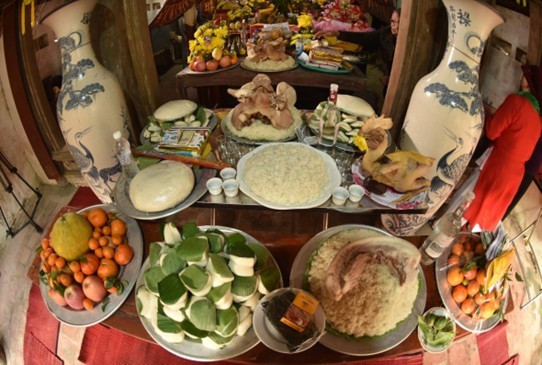
In the afternoon of the same day, after the cakes were placed on the altar, the procession took place in a sacred atmosphere. The procession included elders in traditional costumes, young people carrying the palanquin, led by the lion and dragon dance teams, and the ceremonial music troupe.
When the palanquin arrives at the communal house, each village takes turns carrying incense bowls, offering rice cakes and gifts to the inner palace, preparing for the ceremony to worship Thanh Hoang and the gods.
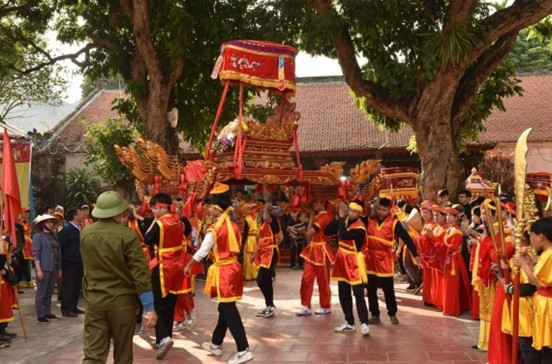
The ceremony is conducted according to traditional rituals: offering incense, reading the funeral oration, offering sticky rice cakes and other offerings to pray for favorable weather, bountiful crops, and a happy life.
After the ceremony, the cakes are divided equally for everyone to enjoy, showing the spirit of solidarity and sharing in the community.
Bustling festival: Joy and wishes for abundance
After the solemn ceremony, the festival is bustling and exciting. Locals and tourists join in unique folk games such as tug of war, blindfolded duck catching, cockfighting, chess; and enjoy folk performances performed by local people and art troupes. This is an opportunity to strengthen the bond between neighbors, arouse pride in the homeland and love for traditional culture.
The Banh Giay Festival at Luc Giap communal house carries many profound values. It is a continuation of the tradition of "remembering the source of water when drinking," expressing gratitude to ancestors and belief in the protection of the gods.
The festival also contributes to preserving and promoting cultural heritage such as folk beliefs, performing arts, cuisine, folk games, folk songs, folk dances, folk music, etc.
Through each festival season, community solidarity is strengthened, the image of the homeland is widely promoted, contributing to promoting tourism development and local economy.
With its rich history and humanistic values, the Banh Giay Festival at Luc Giap communal house is not only an important cultural and religious activity of the people of the six regions but also a unique heritage, contributing to honoring the cultural identity of Ninh Binh and the whole country.
In the sweet aroma of sticky rice cake, the bustling sound of festival drums and the colorful procession, people express their faith, gratitude and wishes for a prosperous and happy life./.
Source: https://www.vietnamplus.vn/le-hoi-banh-giay-dinh-luc-giap-di-san-van-hoa-dac-sac-cua-tinh-ninh-binh-post1075814.vnp



![[Photo] Cutting hills to make way for people to travel on route 14E that suffered landslides](https://vphoto.vietnam.vn/thumb/1200x675/vietnam/resource/IMAGE/2025/11/08/1762599969318_ndo_br_thiet-ke-chua-co-ten-2025-11-08t154639923-png.webp)








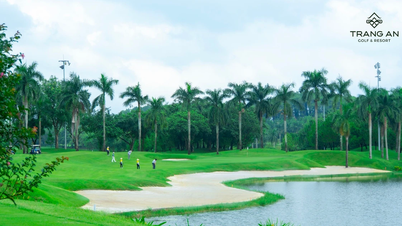








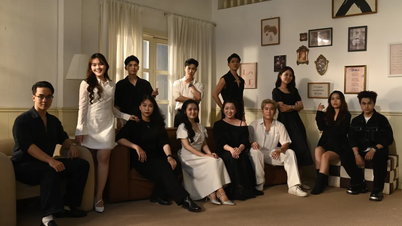
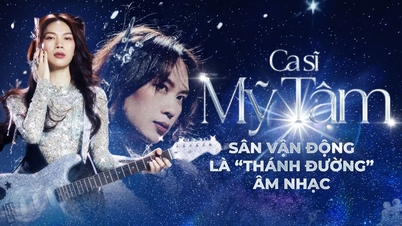



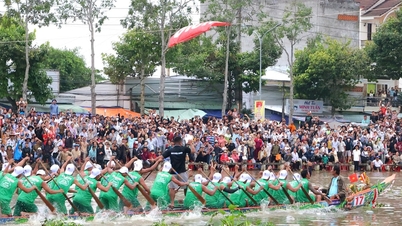









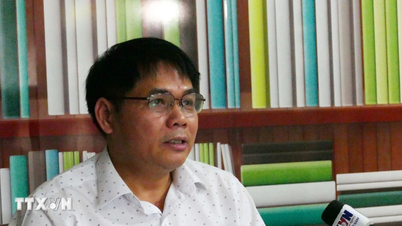










![[Video] Hue Monuments reopen to welcome visitors](https://vphoto.vietnam.vn/thumb/402x226/vietnam/resource/IMAGE/2025/11/05/1762301089171_dung01-05-43-09still013-jpg.webp)































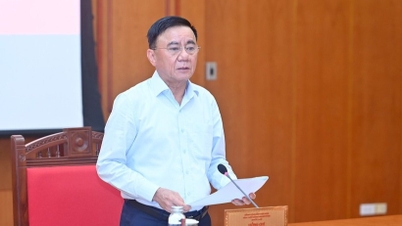




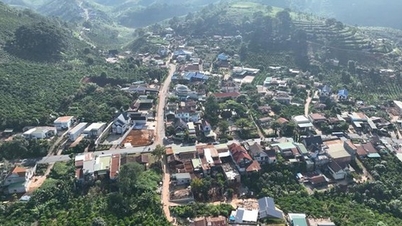
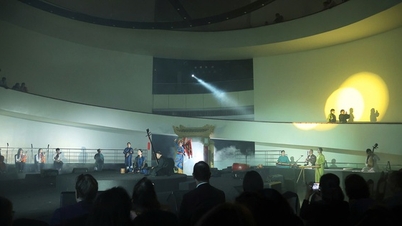
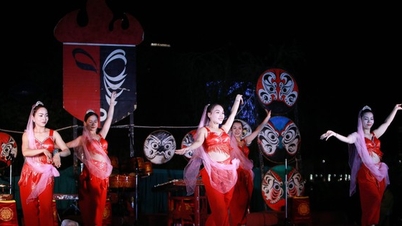
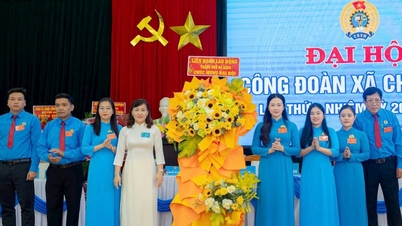

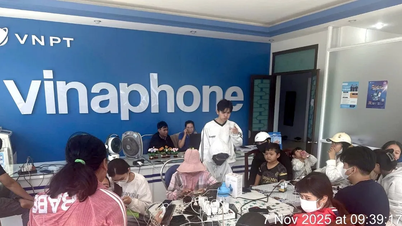


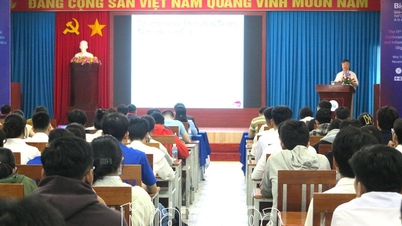

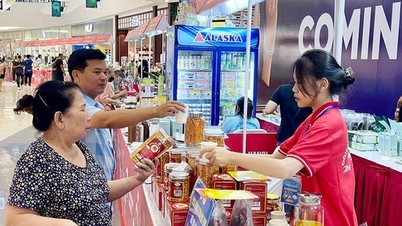

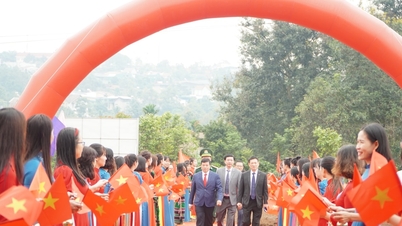

![Dong Nai OCOP transition: [Part 2] Opening new distribution channel](https://vphoto.vietnam.vn/thumb/402x226/vietnam/resource/IMAGE/2025/11/09/1762655780766_4613-anh-1_20240803100041-nongnghiep-154608.jpeg)













Comment (0)